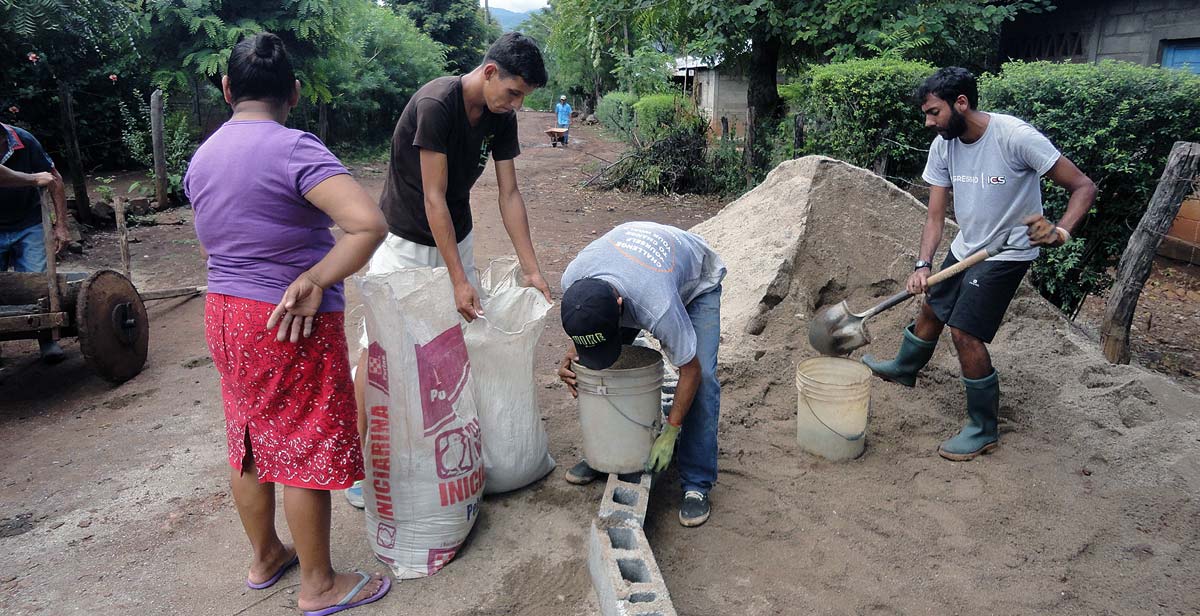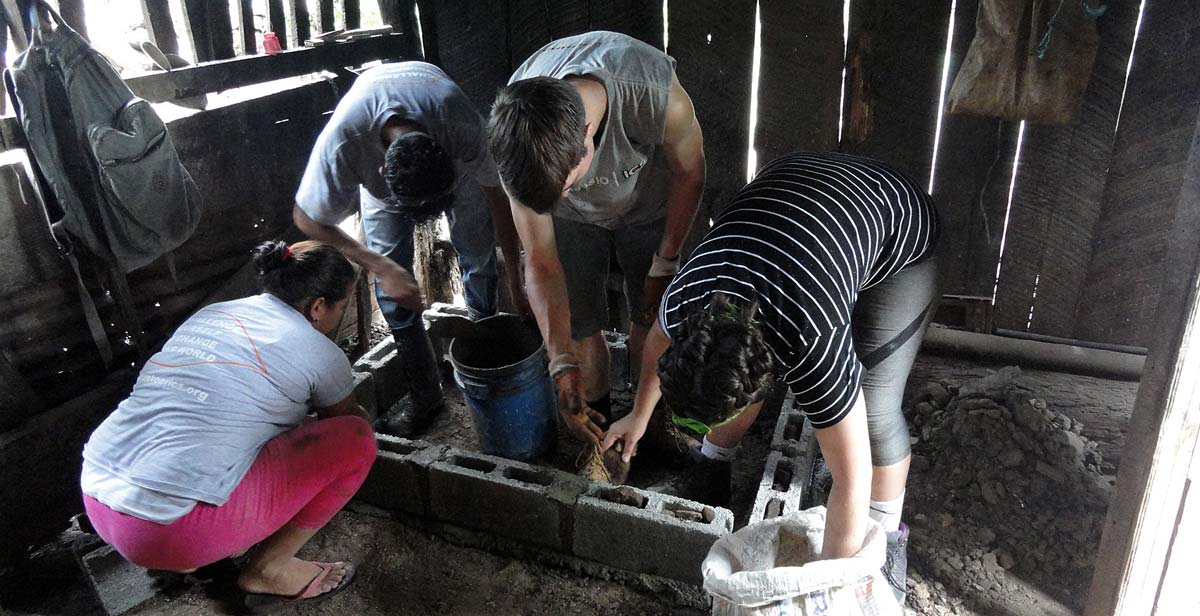This week’s activities revolved around eco-stoves, from beneficiary training and advice, to construction of the eco-stoves.
The weather added a challenge to successfully completing these actions, however it was clear the UK and Nicaraguan volunteers were definitely up to the task.
Karaoke renditions of “Hi-Ho, Hi-Ho, it’s off to work we go” and other popular songs have been sung (albeit with “just” a few notes out of sync) by all volunteers during the first days of construction, which suggests a positive vibe among the group. This attitude should and will remain as we look to complete 17 eco-stoves by the end of this cycle.
The week started with a talk by Progressio and ASOMUPRO volunteers on Monday detailing the benefits of eco-stoves:
(1) consumes less wood thus reducing deforestation
(2) reduction in health hazards as less smoke is produced in the house (this mainly affects women and children)
(3) less soot - house is cleaner, more hygienic and better health conditions
(4) better tasting food
(5) better working conditions for the mother and children of the house
(6) holds more heat thus easier to cook with
One of the main rules in order to receive the eco-stoves is to destroy the current traditional stove prior to construction of the eco-stove, this is done in order to ensure the eco-stove is the one and only form of cooking in the house. The reason being that previous beneficiaries have stated they will destroy their old stoves, but have not fulfilled this.
Eco-stoves are clearly beneficial to communities such as La Grecia (the village the 17 eco-stoves will be built), due to various health and environmental issues faced by this and other communities in similar situations:
(1) nearly 70% of energy used in Nicaragua comes from wood
(2) 30,000 children die each year as a direct result of inhaling too much smoke from the traditional stove
(3) respiratory problems due to the amount of smoke produced by traditional stoves
The families seemed keen on the day of the talk, and this became clearer on the first day of construction when one of the beneficiaries felt she was getting a newer and healthier kitchen. When someone says this, it reinforces the reason why we are here.

So far, 15 eco-stove bases have been built in two days, a good effort despite weather conditions worsening due to the last of the monsoon rain ensuring its presence was known. An example of the ever-increasing rain was at the end of the first day of construction, when the river was too strong to cross. The conclusion was to walk back to town (Limay) and make our way home from there - a two-hour journey. Me being me, couldn’t have been more thrilled by this adventure that was about to unfold. The rain, the mud, a group of volunteers with minimal resources and just our own voices to entertain ourselves is always fun!
We all made it back safely, and this two-hour walk was incredible fun with singing and stomping on puddles becoming the staple of the journey. Not to mention several renditions of “singing in the rain” being shouted rather than sung by all the Gene Kelly impersonators.
Our attitudes when walking back that day seem to reflect the way we are all feeling here in Parcila - positive and happy. The whole group, like I said in my first blog, seem to all be here to do some good, but also seem a little bewildered. I can’t say that everyone has “found” themselves (I haven’t), but everyone seems happier than when we first met 30 days ago in Heathrow airport.

As I sit writing this, the group has decided tonight is yoga night, apparently appropriate after a day of construction. No doubt there will be an audience of confused Parcilans wondering what dance or play we seem to be acting out, a slightly embarrassing but also amusing ordeal.
To conclude this week, the British contingency have definitely become one big, dysfunctional, multi-cultural family. There’s the nervous one, the quiet one, the mellow one, the excitable one and so and so forth that make up this fun bunch of people I am lucky to be with.
Written by ICS volunteer Pradeep (Pepe) Karnani



